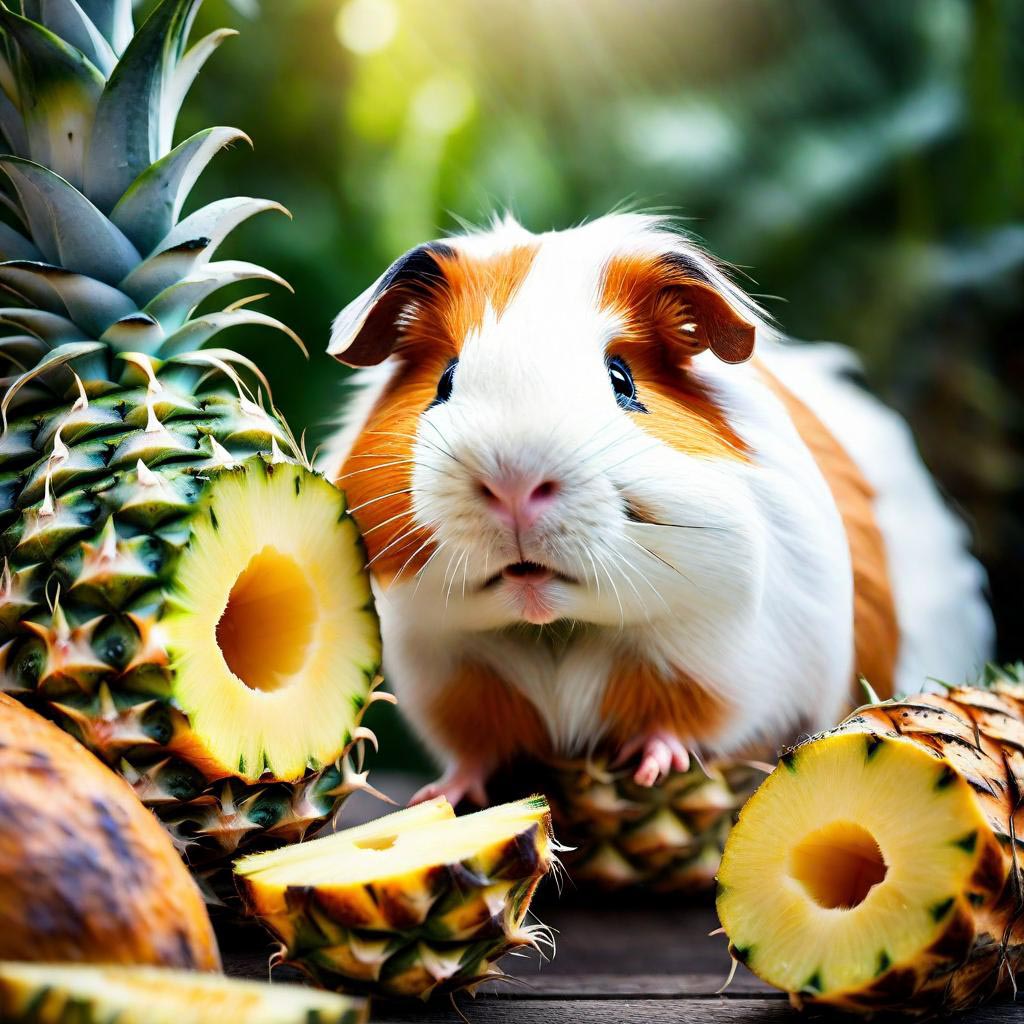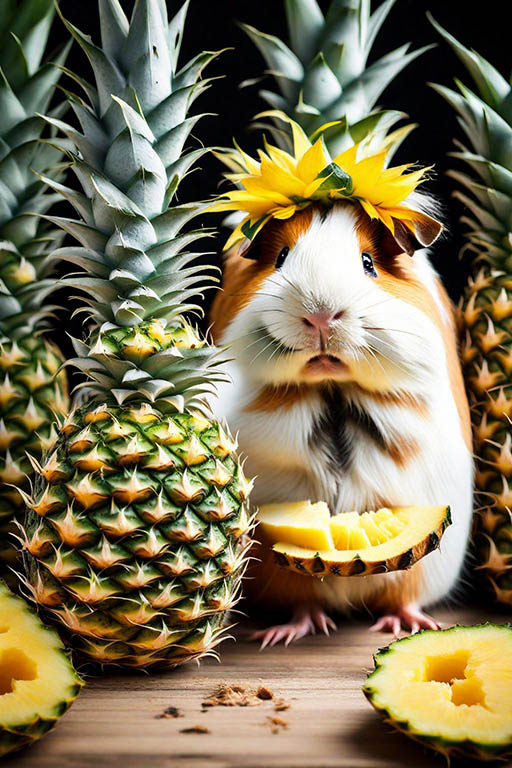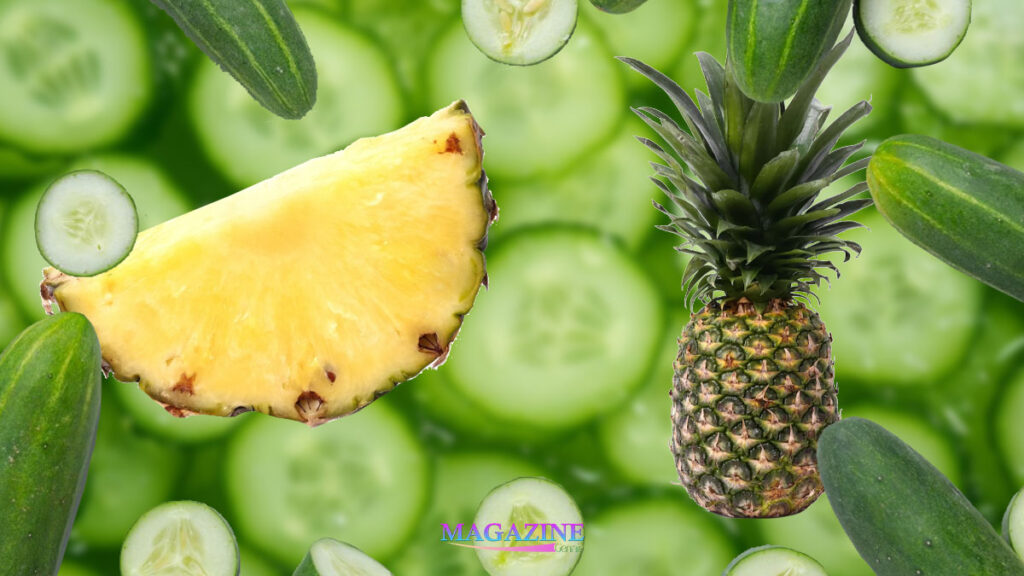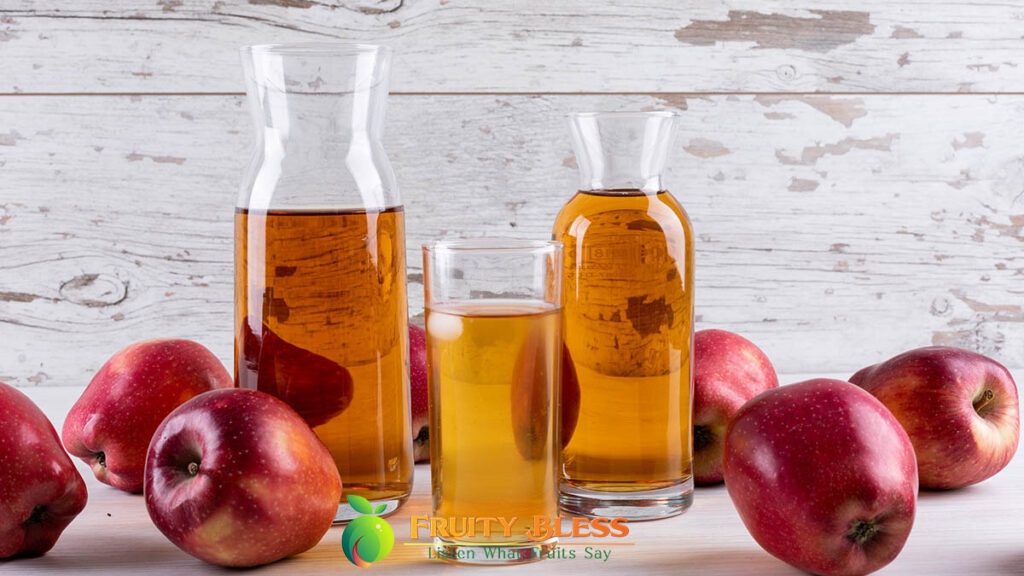Guinea pigs, with their adorable squeaks and insatiable curiosity, can melt even the coldest of hearts. As their loving owner, you want to provide them with the best diet possible, including tasty treats. But can pineapple be part of that delicious mix? The answer, like many things in life, is not so simple.
Table of Contents
The Alluring Sweetness:
Pineapple, with its juicy sweetness, can be a tempting treat for your guinea pig. They might eagerly snatch it up and munch with gusto. However, before you indulge them too freely, let’s explore the potential benefits and downsides.

The Benefits:
- Vitamin C Powerhouse: Guinea pigs, unlike humans, cannot synthesize their own vitamin C, making them dependent on dietary sources. Pineapple is a fantastic source of this essential vitamin, crucial for a healthy immune system and preventing scurvy.
- Digestive Aid: The enzymes bromelain and papain present in pineapple can aid digestion, especially helpful for guinea pigs prone to bloating or constipation.
- Low in Fat: This tropical fruit is naturally low in fat, making it a guilt-free treat for your furry friend.
- Hydration Boost: With its high water content, pineapple can help keep your guinea pig hydrated, especially during hot weather.
See also : 5 Amazing Benefits Of Black Grapes For Your Skin And Hair Health
The Cautions:
- Sugar Overload: The main concern with pineapple is its high sugar content. Excessive sugar intake can lead to weight gain, dental problems, and even disrupt the delicate gut flora in guinea pigs.
- Acidity Concerns: Pineapple is slightly acidic, and large amounts might irritate your guinea pig’s sensitive digestive system, causing diarrhea or other stomach issues.
- Moderation is Key: Remember, treats should only be a small part of your guinea pig’s diet. Too much pineapple can outweigh the benefits and cause harm.
Serving Pineapple Responsibly:
- Start Small: If you decide to offer pineapple, begin with a tiny piece, no larger than a pea, and observe your guinea pig’s reaction.
- Ripe is Right: Choose ripe pineapple, as unripe fruit can be even more acidic and hard to digest.
- Prepare Wisely: Remove the tough skin and spiky crown before offering any pineapple to your guinea pig. Chop it into small, bite-sized pieces.
- Monitor Closely: Watch your guinea pig after consuming pineapple for any signs of discomfort, such as bloating, diarrhea, or loss of appetite. If you notice any adverse effects, stop offering it immediately.
- Limit Frequency: Offer pineapple only as an occasional treat, no more than once or twice a week, and in very small quantities. Remember, their primary diet should be hay, fresh vegetables, and pellets formulated for guinea pigs.
Alternatives to Consider:
Several other fruits offer similar benefits with less sugar content, making them safer alternatives for regular treats:
- Bell peppers: Rich in vitamin C and available in various colors for variety.
- Strawberries: Offer vitamin C and antioxidants in a delicious package.
- Blueberries: Packed with antioxidants and fiber, excellent for occasional treats.
- Kiwi: Another good source of vitamin C and fiber with a sweet, tangy flavor.
Remember: Always consult your veterinarian before introducing any new food to your guinea pig’s diet, especially if they have any underlying health conditions.
Guinea pig owners often wonder if they can offer this delightful tropical fruit to their beloved pets. In fact, the question “Can guinea pigs eat pineapple?” has been extensively discussed within the pet community. Based on research and expert advice, we present a thorough analysis of whether and how guinea pigs may safely consume pineapple.
Nutritional Considerations for Guinea Pigs

Before discussing pineapple specifically, it’s important to understand that guinea pigs are herbivores with unique nutritional needs. Their primary diet consists mainly of hay (such as timothy or alfalfa), fresh vegetables, and pellets formulated especially for them. These animals require high levels of fiber, vitamin C, calcium, and phosphorus in balanced proportions.
Pineapple as an Occasional Treat
While guinea pigs can indeed enjoy pineapple, it must be given sparingly as an occasional treat rather than a regular part of their daily diet. Pineapple contains some beneficial nutrients like vitamins B and C, potassium, and manganese; however, its natural sugars make it less suitable as a frequent food item due to potential health risks associated with excessive sugar intake.
Preparation Tips for Serving Pineapple to Guinea Pigs
When offering pineapple to your guinea pig, follow these guidelines:
- Choose ripe fruits with no bruises or soft spots.
- Remove the rind and core thoroughly before serving.
- Cut the remaining flesh into bite-sized pieces about half an inch square.
- Offer just one or two pieces per feeding session.
It’s essential to note that guinea pigs cannot digest pineapple skins, which contain indigestible fibers. Therefore, never give your guinea pig any portion of the outer layer.
Potential Risks Associated With Pineapple Intake
Although pineapple offers certain benefits when consumed moderately, there are also potential risks to consider:
- High sugar content: As mentioned earlier, excess sugar consumption can lead to obesity, dental issues, and diabetes.
- Acidity: Some guinea pigs might experience mild stomach upset from consuming acidic foods such as pineapple. Monitor your pet after introducing new foods to ensure they do not exhibit signs of discomfort.
- Choking hazards: Small pieces of pineapple could potentially become lodged in your guinea pig’s throat, leading to choking. Always cut the fruit into appropriately sized portions.
In conclusion, guinea pigs can have pineapple as an occasional treat, provided it is prepared carefully and served in moderation. By following proper preparation techniques and monitoring your pet’s response to the new addition to their diet, you can help maintain their overall wellbeing and happiness.


